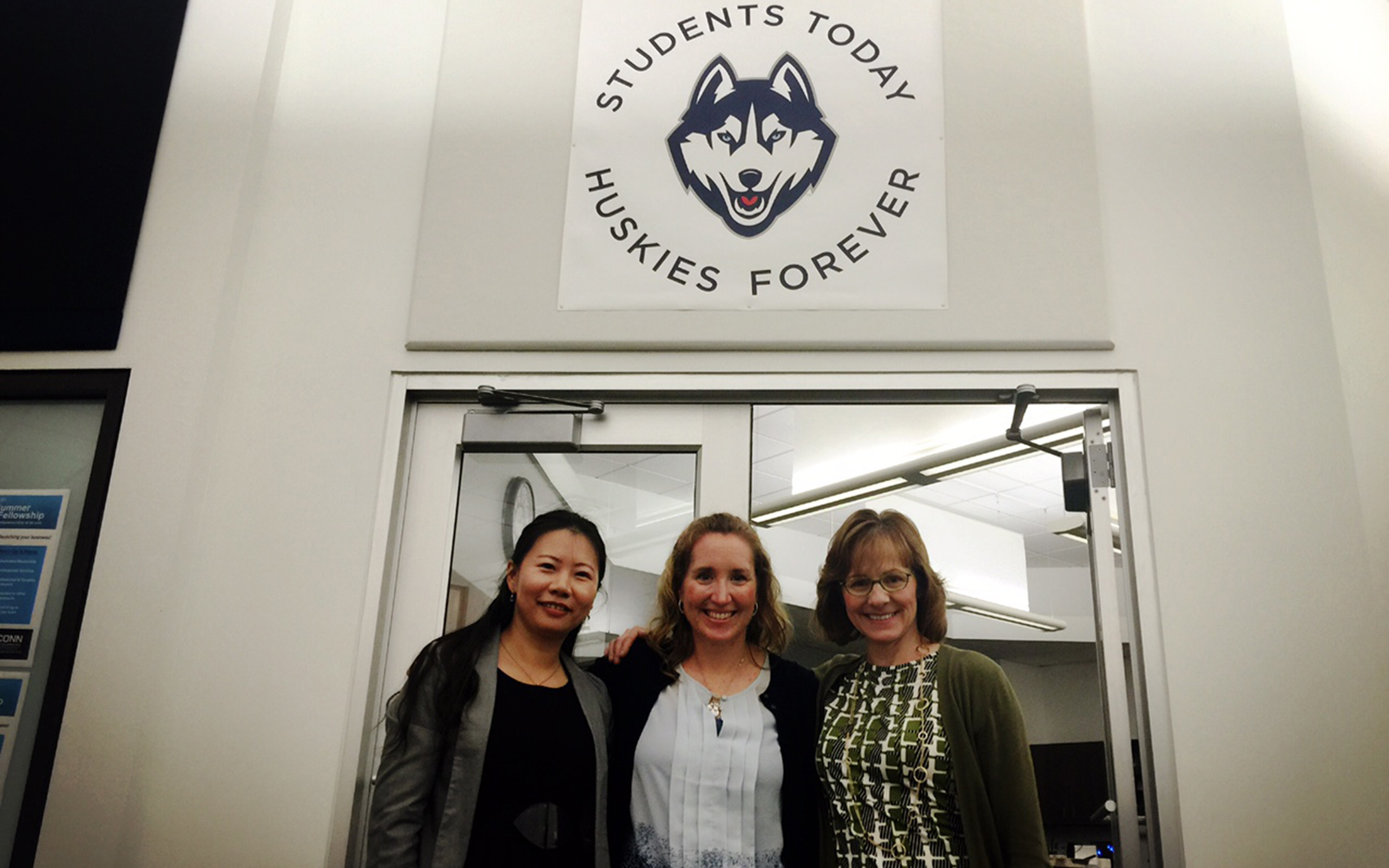
My Experience with the Connecticut Center for Entrepreneurship & Innovation (CCEI)
I worked for multinational corporations for 10 years. My career grew from sales to marketing. As a product marketing professional, I have launched 10 products in the last 6 years. However, I can’t stop asking myself, “What else can I do to contribute more to my career? Where is the next step to lead to a meaningful life?”
As an international student, an internship was a valuable start to kick off a new life in a new country. I was hired by CCEI (Connecticut Center for Entrepreneurship & Innovation) as entrepreneurial lead in the 2016 Summer Fellowship program. After that I was selected for Accelerate UConn, a program that partners with the Office of the Vice President for Research, Biomedical Innovation, and Entrepreneurship program. In the summer of 2017, I was hired again by CCEI as a business consultant in the Verge program and worked for the SBDC (Connecticut Small Business Development Center) to provide advisory services for start-ups. It was a selection out of a pool of more than 55 candidates and I was the only one to get extended to continue work for SBDC after the summer.
The Summer Fellowship program is specialized to match business graduates to researchers for technology commercialization. Combining my business study at UConn, and my previous marketing experience, I was selected to join a company that develops rheumatoid arthritis therapeutic solutions for people who can’t survive with current treatments. We were provided with training and practice on how to start a business in the United States. We were asked to present business challenges on questions of formulating a business effectively almost every day. The challenges covered envisioning the organization’s mission, promoting effective commercial strategies, and applying efficient project finance. It was an unforgettable experience in start-up practice. The following three experiences, I can’t wait to share.
Firstly, innovation and communication. My past work experience on product launch only focused on bringing products into the market. However, in the biotech R&D company, I could work on products that have never existed in the market but are something customers are looking for. Based on my experience in defining market value for a ready product, in the summer fellowship program, I had the chance to define the product based on market needs. We used the Business Canvas Model to explore customers’ expectations and validate assumptions with a few questions. Customers are stakeholders, including buyers, payers, users, regulators, and policymakers. Research results from primary and secondary, quantitative and qualitative market research were applied and multiple sources of literature were reviewed. Based on these results, we funneled the features to the most important selling benefits that fit the customers’ voice. The features we defined brought us to the R&D phase of the market test. In order to be successful on the market, we defined and revised the product or services niche for the marketplace that was innovative and matched the customers’ expectations.
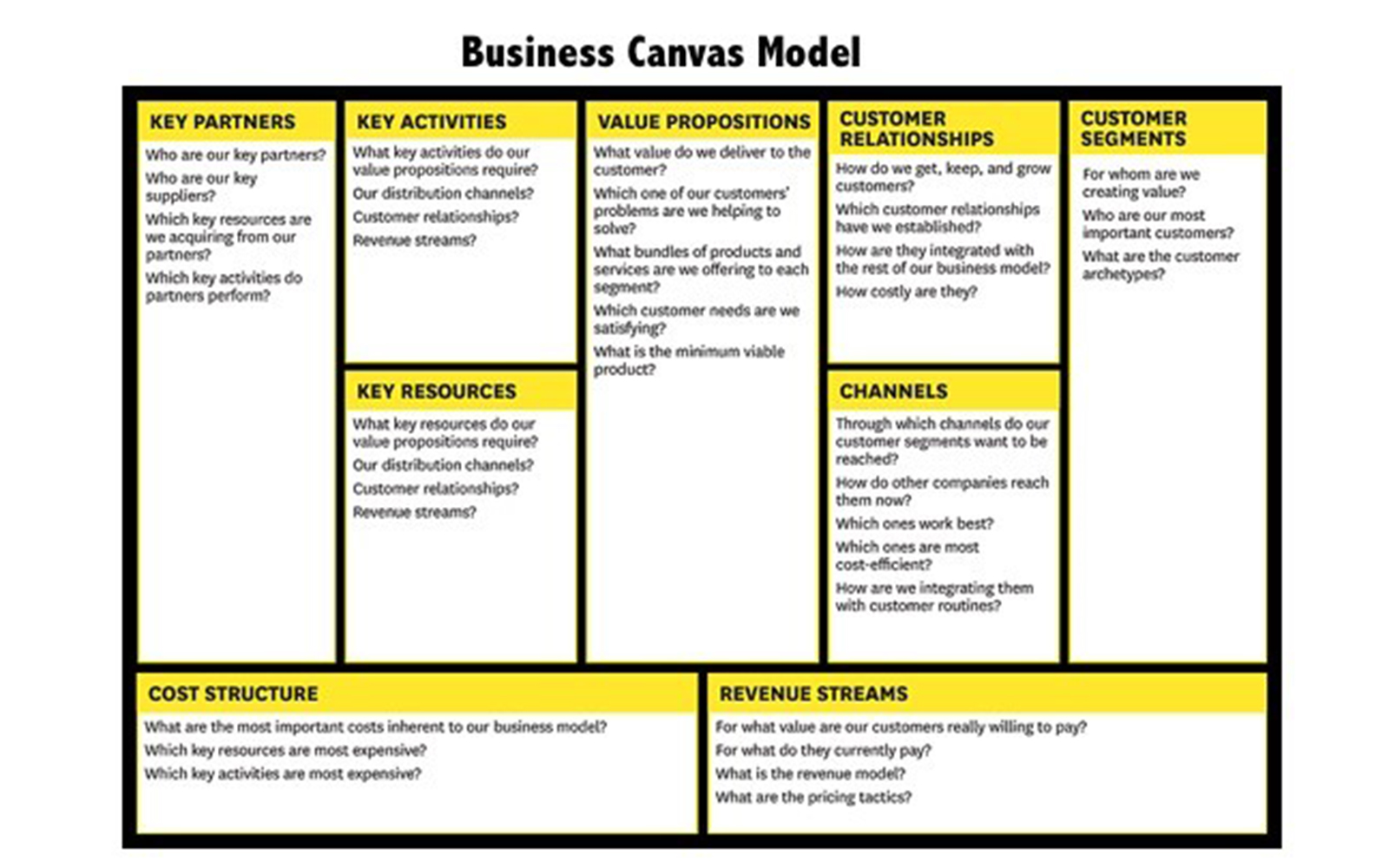
Secondly, leadership. The experience as a summer fellow allowed me to grow my personal leadership capability significantly. The company I worked for is a start-up, so we had to learn everything we needed to know — everything about starting a business, such as operation management, finance, sales, and marketing, legal and logistics. We managed the business from a CEO’s perspective rather than only focusing on a certain part of the business function. Thinking and acting beyond the best overall interest of the business was my life for every day. In learning to be a decision maker, one must see the big picture. The project mentors, Michelle Cote and Caroline Dealy are extremely knowledgeable and were helpful on the journey. The feedback and advice collected from them every day led to a clear roadmap with less risk and more fun!
Thirdly, collaboration. Due to limited cash resources in start-ups, to leverage the most efficient other resources and to collaborate with others, including possible partners, for win-win situations are a way to get the best possible business outcome. The Summer Fellowship program hosted networking seminars to connect us with industrial experts. Those events provided the opportunity to link us to other businesses. For example, a device company was trying to develop a technology that was well aligned with our concept, and we had the chance to discuss the opportunity to co-develop the MVP in the future. We also were introduced by this company to a decision maker in the insurance industry that allowed us to foresee the market value of our product from the payers’ perspective in a group discussion. The mindset of collaboration and always offering value for win-win is the best approach to stay in a healthy business eco-system.
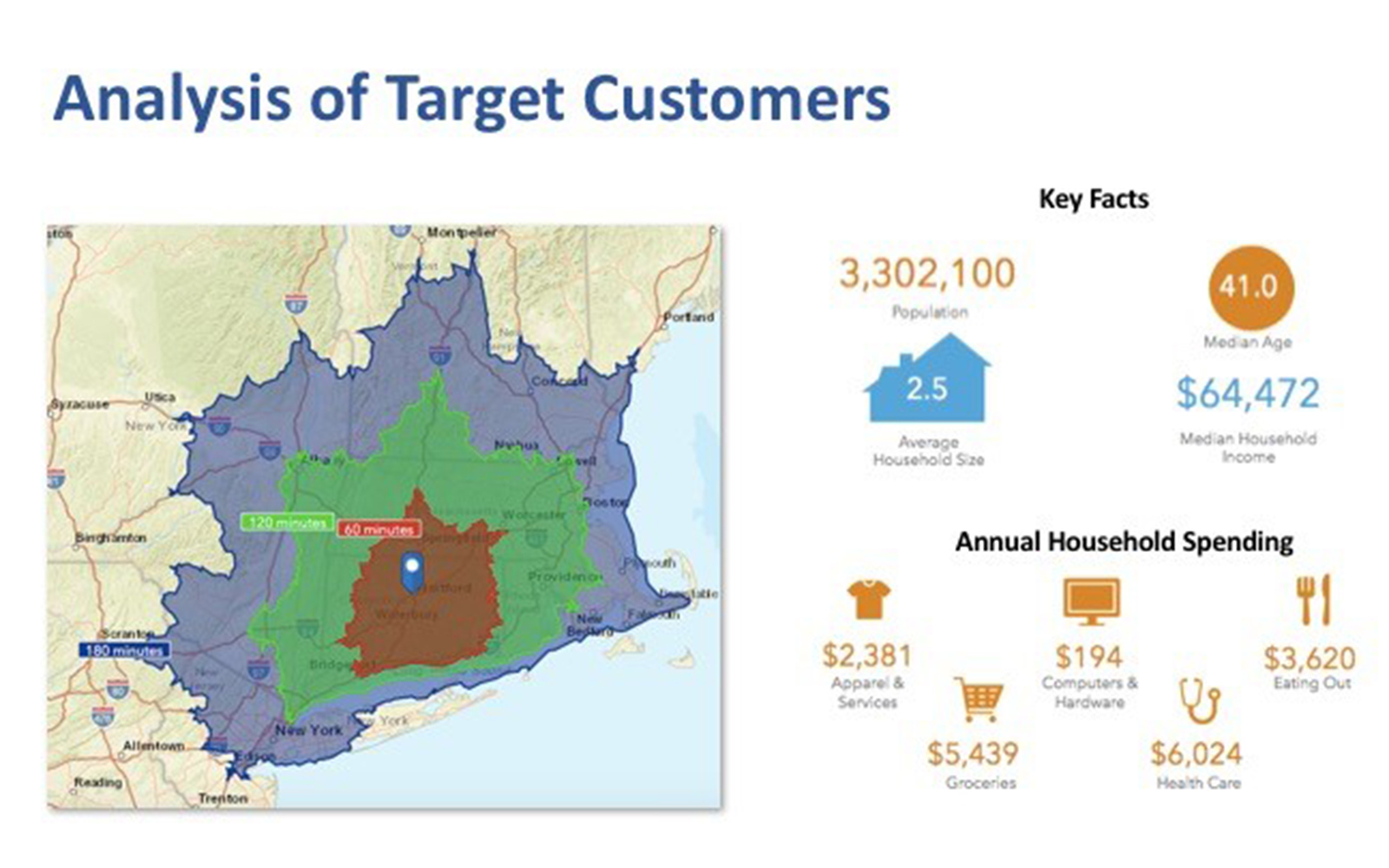
Overall, it is fun to learn the entire process of starting a business from a product idea and the best practices to leading the business to success.
As a business consultant for SBDC, my previous entrepreneurial experience enabled me to move from working for a start-up to an advisor for start-up companies. My past corporate experience in sales and marketing strengthened my expertise to offer the solution to help companies’ business growth effectively.
I had the chance to serve businesses from early stage to the middle stage, and some of them are going to expand to international markets. Most of the early-stage companies are in the product concept discovery stage. I was touched by the passion of their business ideas and the action of taking the lead. It was so amazing how unique their ideas are and how they see the market differently for its business potential. Based on previous related experience in sales and marketing, and my study in Business Analytics at UConn, my expertise as a consultant is to help the clients transfer their technology into a commercially viable product, mostly in the medical device sector. I provided clients with discovery tools and evaluation process, as well as project risk and cost maps to help companies transform from research to business. Most of the ideas are so innovative! I was so proud of my work because I am part of their teams turning their dreams to be true.
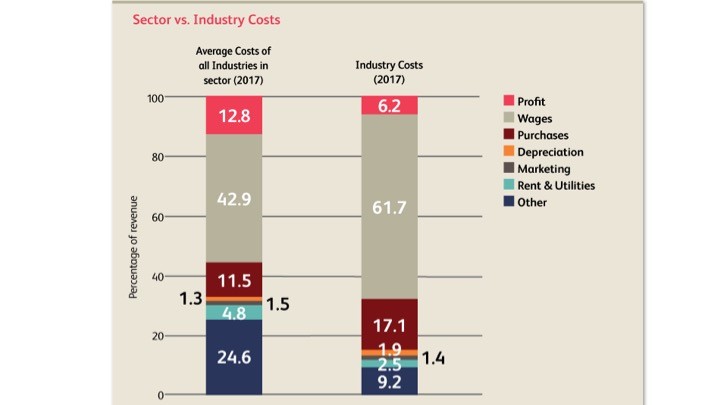
Analysis of finance and valuation bench-marking is the first step to assess business health in my daily practice. Most of the business will boost once the funding support is ready. Without a clear understanding of the business financial model, the business is hard to commit going further. I am trained to specialize in finance and efficiently utilize the right tools and methods to help clients understand their financial situation and layout the possibility of their future funding resources. One company was willing to move from the U.S. domestic market to international, but it was struggling to find sufficient funding to move forward. I worked with the company to collect data from all the possible sources, and consolidated the results with analytical insights and evidence. Based on its business financial model, a new developed financial validation model and business plan were suggested to help the business raise enough funding within next 2 months. We were recently informed that the business has successfully kicked off their international market exploration journey.
Most importantly, the mentors from SBDC are experienced advisors who were successful in their business and they provided effective support to help us better service for clients. Emily Carter, Joseph Ercolano, Denise Whitford, and Gregory Lewis are extremely knowledgeable and experienced in bringing businesses to success. Through a weekly meeting with mentors, I had the chance to ask questions and get assistance from them. The culture of transparency and trust within the team allowed me to do the right things in a right way. Learning the problem-solving skills from mentors was a big treasure. They shared their 20 to 30 years of industry experience with us and provided the lessons to avoid unnecessary detours for clients’ businesses and also provided me with eye-opening lessons.
Learning is a life-long journey. A career as an entrepreneur is fun and full of adventure. In real life, entrepreneurship is everywhere, no matter whether a corporation or in a startup. I believe that the reward of an entrepreneur’s spirit is “life-giving!”
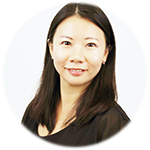
Guanwei Tao
Graduate Student, MS in Business Analytics and Project Management, Biomedical Innovation & Entrepreneurship
Guanwei Tao is a graduate business student at the UConn School of Business, with experience in marketing of medical devices and healthcare, business analytics, and product portfolio management. Guanwei has worked on many projects throughout her career, successfully launching 10 different medical device products into market and initiating the first online education platform in China. Through her study experience on business analytics and entrepreneurship from UConn graduate programs, she is strengthening her expertise on market assessment, customer discovery and business development. She is planning towards starting her own business in Connecticut soon after she graduates from UConn. View Posts